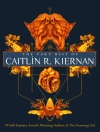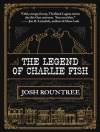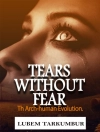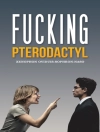In ‘Ziska: The Problem of a Wicked Soul, ‘ Marie Corelli crafts a mesmerizing tale that delves into themes of love, obsession, and the supernatural. Set against a backdrop of early 20th-century Egypt, the narrative intertwines the story of a captivating but nefarious woman with elements of mysticism and spirituality. Corelli’s lyrical prose and rich imagery evoke the sights and sounds of the exotic East, while her exploration of moral complexities reflects the tension between traditional values and burgeoning modernity. The novel resonates with her characteristic flair for the dramatic, inviting readers to experience a profound emotional journey amid the haunting allure of ancient civilizations. Corelli, a prominent figure in the late Victorian and Edwardian literary scene, often challenged societal norms through her writing, addressing themes of spiritualism that captivated her audiences. Her personal experiences, including her fascination with the occult and the enigmatic nature of love, undoubtedly informed the complex character of Ziska. As one of the first female best-selling authors, Corelli wielded significant influence and used her works to criticize and reflect upon contemporary ethical dilemmas, making her voice both enduring and impactful. ‘Ziska’ is a compelling read for those who appreciate a confluence of romance, spirituality, and psychological depth. Corelli’s exploration of the human soul, steeped in an imaginative narrative, invites readers to ponder their own beliefs about morality and desire. This novel, rich with vivid descriptions and intricate characterizations, stands as a timeless reflection on the dualities of human nature—a recommended addition to any literary collection.
เกี่ยวกับผู้แต่ง
Marie Corelli (1855–1924) was a prolific British novelist who rose to immense popularity during the late 19th and early 20th centuries. Born Mary Mackay in London, she adopted the pen name Marie Corelli for her literary work. Corelli’s novels blend elements of Gothic, fantasy, and romance, often with a moral or spiritual message, reflecting her interest in spiritualism and the occult. Her work was characterized by a florid, melodramatic style that resonated with the Victoriana readership of her time, though it often met with critical disdain for its perceived lack of literary refinement. Corelli’s novel ‘Ziska: The Problem of a Wicked Soul’ (1897) exemplifies her fascination with the supernatural, exploring themes of reincarnation against the backdrop of the mystical allure of Egypt. Despite her contemporary critics, Corelli’s novels outsold her contemporaries for a time, including those of Arthur Conan Doyle, H.G. Wells, and Rudyard Kipling, affirming her status as a literary celebrity. Often depicted as a reclusive and passionate individual, Corelli maintained a close partnership with her companion Bertha Vyver, and their relationship has been the subject of speculation and interest among her biographers. Although her popularity waned after her death, Corelli’s contribution to popular fiction and her trailblazing role as a successful female author in a male-dominated industry continue to be recognized by literary historians.












